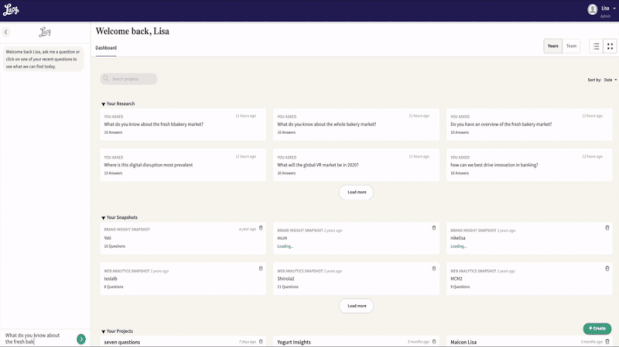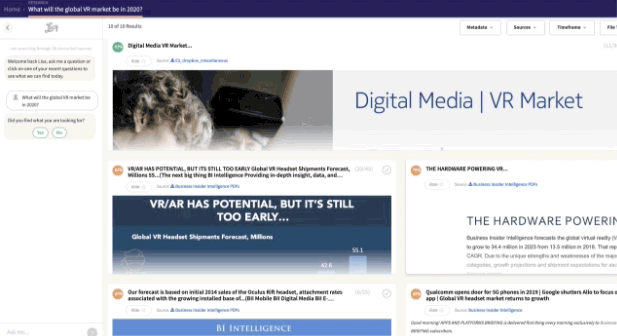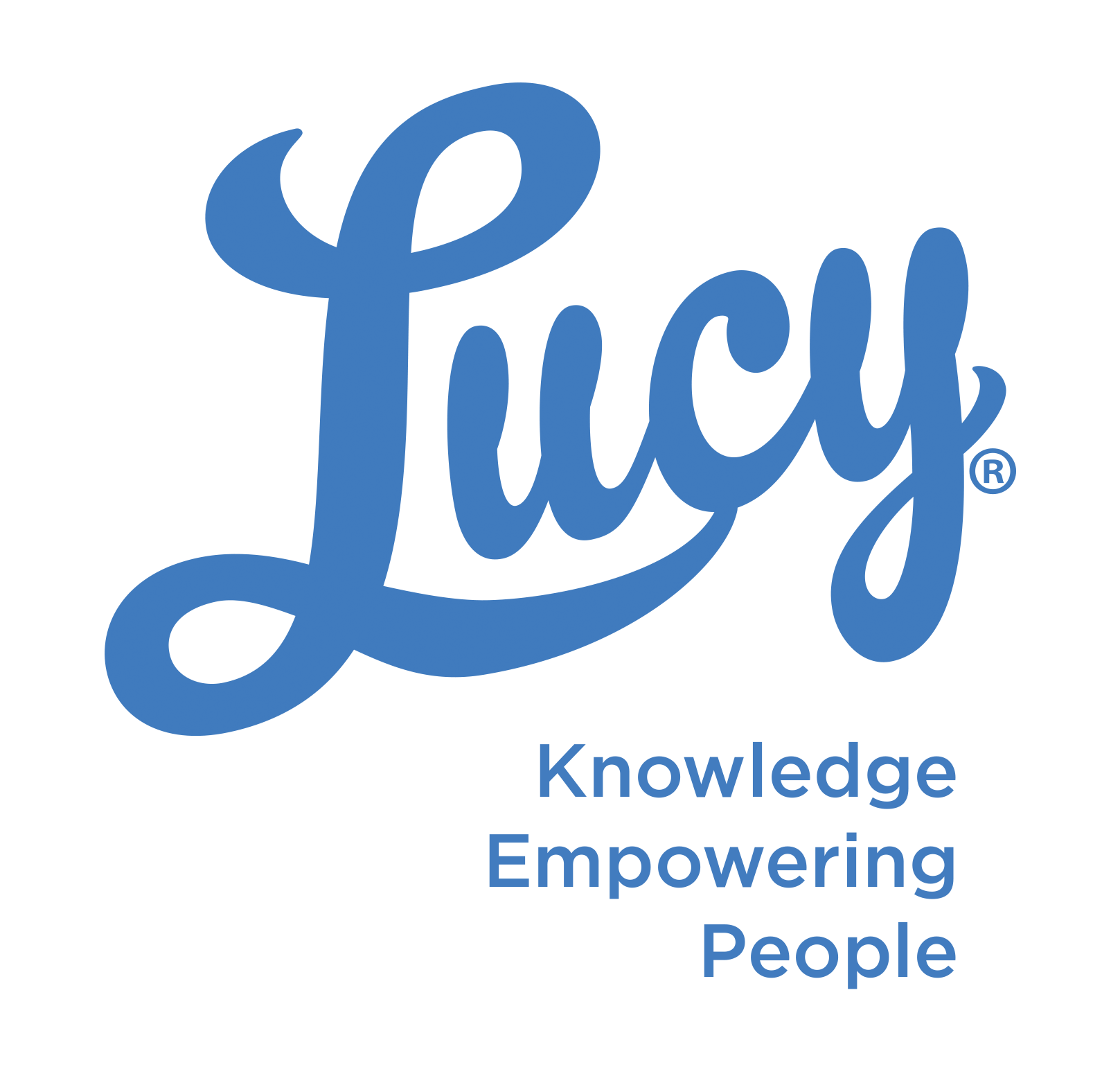The effective management and accessibility of corporate knowledge play a pivotal role in driving productivity and fostering seamless collaboration in the modern workplace. As organizations strive to optimize their operational efficiencies, the significance of enterprise knowledge management has reached new heights. By leveraging advanced AI-driven solutions, enterprises can revolutionize how they harness internal knowledge, enhancing productivity and teamwork.

Here are five key features of enterprise knowledge management that directly contribute to the amplification of productivity and the cultivation of a collaborative work environment.
Centralizing Information Access for Enterprise Knowledge Management
The ability to swiftly access and leverage corporate information is paramount to operational efficiency and strategic decision-making. Here is how enterprise knowledge management systems directly contribute to this crucial aspect of organizational productivity:
- Streamlined Data Retrieval: knowledge management platforms serve as unified indexes, consolidating a vast array of corporate data into a single, easily accessible Answer Engine®. This consolidation significantly reduces the time employees spend sifting through disparate sources, ensuring that the latest information is readily available.
- Enhanced Productivity: By centralizing corporate data, knowledge management systems enable employees to swiftly locate the required information, minimizing the time spent on information retrieval tasks. This efficiency directly translates to heightened productivity levels across departments and functions.
- The centralization of information access through knowledge management systems not only expedites data retrieval but also empowers employees to focus more of their time and effort on strategic initiatives.
Enhancing Decision-Making
Maintaining a competitive edge requires the swift ability to make well-informed decisions. Here's how knowledge management systems directly contribute to enhancing decision-making processes and fostering a proactive business environment:
- Rapid Access to Pertinent Answers: knowledge management systems provide employees with swift access to relevant information and actionable insights, enabling them to make informed decisions faster. This accessibility to a wealth of data and analytics empowers decision-makers to respond effectively to market dynamics and evolving business requirements.
- Minimized Errors and Proactive Adaptation: By leveraging knowledge management systems, organizations minimize the margin for error in decision-making processes. The availability of comprehensive data and insights aids in mitigating risks and optimizing strategic choices. Moreover, the agility facilitated by knowledge management systems allows businesses to proactively adapt to market shifts, fostering a dynamic and responsive operational environment.
Facilitating Collaboration
In environments where teamwork is interlinked, working together smoothly is a fundamental key to achieving organizational goals. Let us look at how enterprise knowledge management systems enhance team collaboration and foster an environment where sharing knowledge is an integral part of team dynamics:
- Breaking Down Silos: knowledge management platforms play a pivotal role in breaking down information silos within organizations, providing teams with a shared knowledge base that is easily accessible across departments and locations. This breakdown of barriers fosters a cohesive approach to information sharing and collaboration, eliminating redundancies and enhancing overall efficiency.
- Bolstering Project Collaboration and Communication: Accessing a shared knowledge base via knowledge management systems empowers teams to collaborate effectively on projects, leveraging collective insights and expertise. Additionally, the seamless communication facilitated by these platforms ensures that team members can exchange ideas and information in real-time, further nurturing a culture of open collaboration and innovation.
Streamlining Onboarding and Training
Seamless integration of new hires into a company's culture and workflow is crucial for their success and overall organizational growth. Enterprise knowledge management systems play a key role in simplifying the onboarding process and enhancing ongoing learning for employees:
- Accelerated Learning Curve: By leveraging knowledge management for onboarding, organizations can swiftly immerse new hires in the corporate culture and equip them with essential knowledge and resources. This accelerates the learning curve, enabling employees to contribute meaningfully to their roles expeditiously.
- Reduction in Training Expenses: knowledge management systems play a vital role in reducing the expenses associated with employee training. The centralized nature of these platforms allows organizations to deliver consistent and comprehensive training materials, minimizing the need for costly in-person training sessions and external resources. This streamlined approach contributes to a quicker return on investment (ROI) for new talent and optimizes the utilization of training budgets.
Preserving Enterprise Organizational Knowledge
The preservation of institutional memory is vital in safeguarding the expertise and insights gained through years of organizational experience. Enterprise knowledge management systems play a critical role in preserving institutional knowledge and mitigating the impact of staff turnover, promotions, or internal transfers:
- Capturing Tacit Knowledge: knowledge management systems enable organizations to capture the tacit knowledge of departing employees, ensuring that valuable insights and experiences are retained within the company. This proactive approach to knowledge preservation safeguards against losing critical expertise and institutional memory.
- Maintaining Organizational Continuity: By preserving institutional knowledge, organizations can maintain a sense of continuity and build upon past successes and learnings. The retention of valuable insights ensures that the organization can continue to leverage historical knowledge, preventing setbacks due to the departure of key personnel.
- The strategic use of knowledge management systems to preserve organizational knowledge not only mitigates the impact of staff turnover, it also empowers organizations to sustain their expertise and build upon past achievements
Knowledge management systems offer a transformative solution for enhancing productivity and fostering organizational collaboration. By centralizing information access, enhancing decision-making, facilitating collaboration, streamlining onboarding and training, and preserving organizational knowledge, knowledge management systems play a pivotal role in optimizing operational efficiencies.
The importance of integrating knowledge management systems such as Lucy in today's business strategy is immense. These systems equip organizations with the tools needed to stay ahead in a competitive market by enhancing efficiency and fostering a culture of knowledge sharing.
Choosing to implement such AI-driven platforms is more than a strategic decision—it's essential for optimizing how employees use their time, focusing on strategic initiatives rather than searching for information. This shift not only elevates productivity but also propels the organization toward achieving greater milestones. Ready to explore how Lucy can transform your business operations? Schedule a demo










